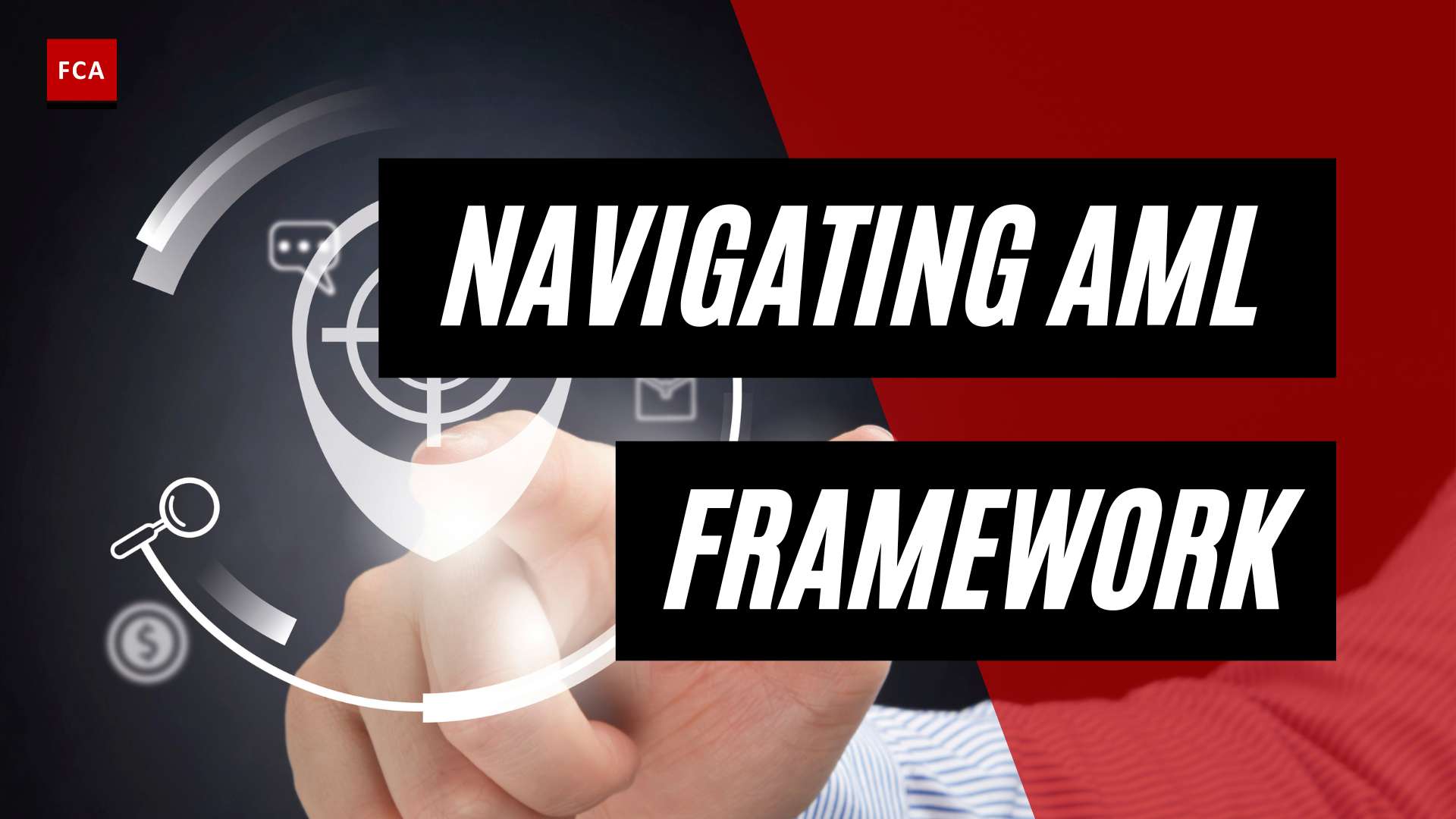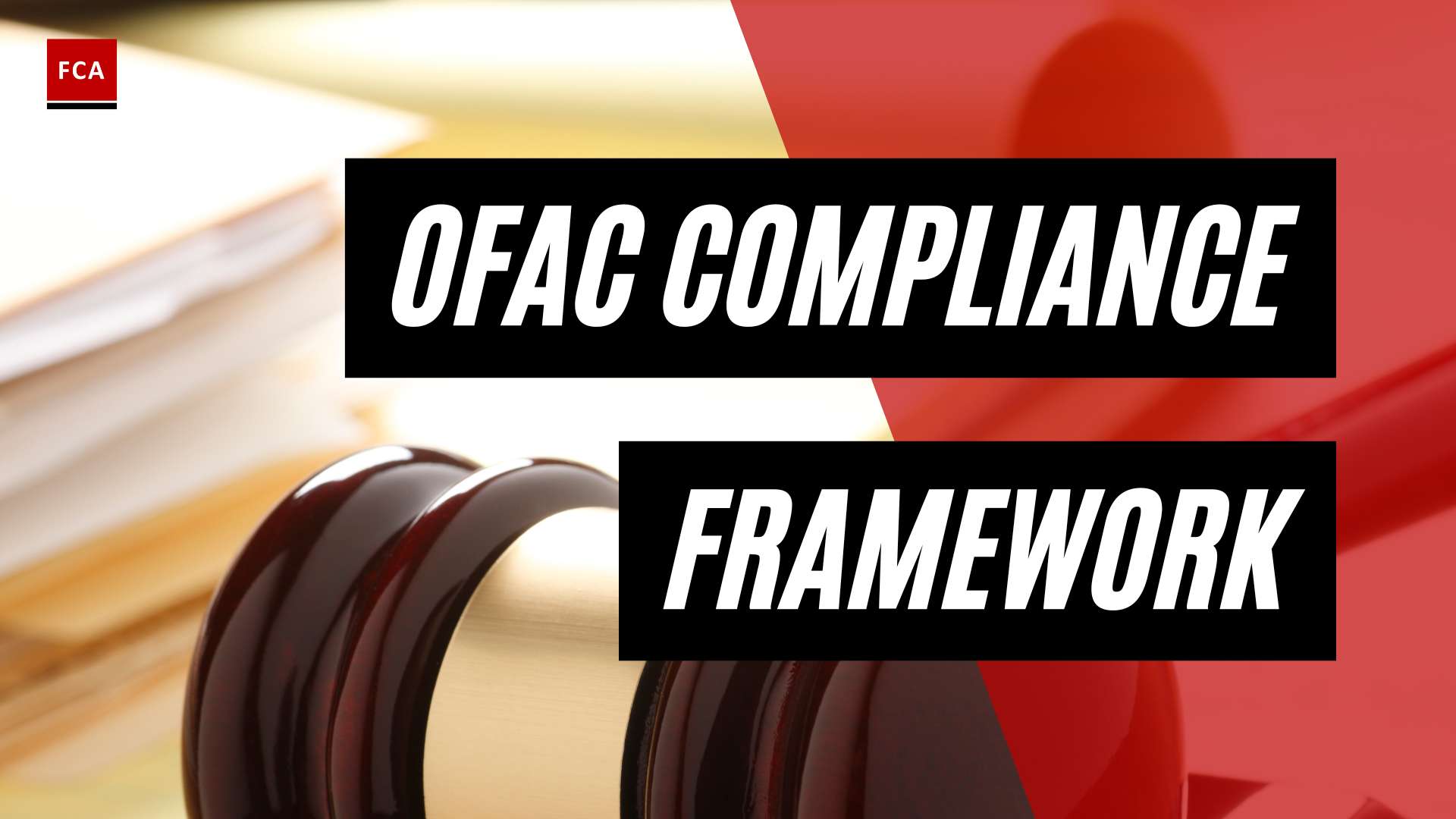Career Paths in AML
In the field of Anti-Money Laundering (AML), there are various career paths available for individuals interested in combating financial crimes and ensuring compliance with regulations. Two prominent career paths in AML are AML Investigator and AML Analyst.
AML Investigator
AML investigators play a critical role in detecting and investigating money laundering activities, financial crimes, and fraudulent transactions within financial institutions. Their primary responsibilities include analyzing financial records, monitoring transactions, and conducting thorough investigations to uncover suspicious activities. AML investigators rely on a range of tools, such as software programs, databases, and surveillance systems, to identify patterns and detect potential money laundering activities (Franklin University).
To excel in this career path, AML investigators must possess strong analytical skills, attention to detail, and in-depth knowledge of financial regulations and compliance procedures. They often collaborate with law enforcement agencies, compliance officers, and legal teams to build cases against individuals or organizations involved in illegal financial activities.
To become an AML investigator, individuals typically need a bachelor’s degree in finance, accounting, business, or a related field. Some employers may also require certifications such as the Certified Anti-Money Laundering Professional (CAMP) credential to demonstrate expertise in AML practices. These certifications provide valuable knowledge and enhance the credibility of AML investigators in the field (Franklin University). For more information on AML certifications, you can refer to our article on aml certifications.
Job opportunities for AML investigators can be found in various financial institutions, government agencies, consulting firms, and corporate organizations that aim to prevent money laundering and financial fraud. The demand for AML investigators is expected to grow as financial regulations increase and the threat of financial crimes rises. This career path offers a rewarding opportunity to contribute to the protection of the financial system and society as a whole.
AML Analyst
AML analysts also play a crucial role in ensuring compliance with AML regulations and protecting companies from potential penalties. These professionals investigate and monitor suspicious financial activities to identify and report any potential money laundering risks. AML analysts are responsible for sorting legitimate transactions from illegitimate ones, which can be challenging for financial institutions.
One of the primary responsibilities of AML analysts is to develop and implement comprehensive AML compliance programs within their organizations. They work closely with compliance officers and other stakeholders to design effective strategies and procedures to prevent money laundering and financial crimes. AML analysts manage the complexities involved in AML compliance, ensuring that their companies adhere to regulations and avoid penalties (Sanction Scanner).
Investing in technology is crucial for AML analysts to efficiently detect and investigate suspicious activities. Advanced AML software, such as that provided by Sanction Scanner, integrates AI-driven solutions that streamline compliance programs and help organizations meet the requirements of AML and Combatting the Financing of Terrorism (CFT) regulations. This technology enables AML analysts to effectively manage compliance complexities and protect their companies from potential AML regulations, fees, and penalties (Sanction Scanner, aml career options).
The career path of an AML analyst offers opportunities to contribute to the development and implementation of robust AML compliance programs. AML analysts are vital in the ongoing fight against money laundering and financial crimes, ensuring the integrity of the financial system and the protection of companies from regulatory penalties (Sanction Scanner, aml analyst career).
Skills and Qualifications for AML Careers
In order to succeed in a career in Anti-Money Laundering (AML), individuals need to possess a specific set of skills and qualifications. AML careers require a blend of analytical abilities, knowledge of financial regulations, and effective communication skills. Additionally, proficiency in technology and software tools is essential for efficient AML investigations.
Analytical Skills
AML investigators must have strong analytical skills to review and analyze large volumes of financial data. They need to be able to identify potentially suspicious activity and patterns, making sure that legal and regulatory requirements are met. Analytical skills allow investigators to connect the dots and uncover potential money laundering schemes. Attention to detail is crucial in this process to accurately document findings and ensure compliance with regulations (Indeed).
Attention to Detail
Attention to detail is vital for AML investigators. They need to meticulously examine financial records, transactions, and other relevant information to identify any anomalies or signs of suspicious activity. By paying close attention to the smallest details, investigators can ensure that no potentially illicit activities go unnoticed. Attention to detail also extends to accurately documenting findings and preparing reports for further action (Indeed).
Knowledge of Financial Regulations
A deep understanding of financial regulations and compliance procedures is essential for AML investigators. They must stay up to date with the ever-changing landscape of laws and regulations related to money laundering. This knowledge allows investigators to effectively identify and respond to potential violations. It also enables them to collaborate with compliance officers, legal teams, and law enforcement agencies to build strong cases against individuals or organizations involved in illegal financial activities (Franklin University).
Communication Skills
Strong communication skills are crucial for AML investigators. They need to effectively communicate their findings, both in writing and verbally. Investigators often collaborate with colleagues, share information with compliance officers and law enforcement agencies, and may even need to testify in legal proceedings. Clear and concise communication ensures that important information is conveyed accurately and facilitates effective collaboration across different teams and departments (Indeed).
Technology and Software Proficiency
Proficiency in technology and software tools is vital for AML investigators to conduct research, manage data, and streamline their investigations effectively. Investigators need to be adept at utilizing various software applications and databases to gather information, analyze data, and track financial transactions. Technology enables them to navigate through the vast amount of financial data efficiently and identify potential red flags. Staying updated on industry trends and advancements in technology is crucial for AML investigators to adapt to evolving challenges in the field (Indeed).
By possessing these skills and qualifications, individuals can thrive in AML careers. Whether it’s analyzing financial records, monitoring transactions, or collaborating with law enforcement, AML investigators play a critical role in detecting and preventing money laundering activities. A solid foundation in these skills and a commitment to ongoing learning and professional development will ensure success in the dynamic field of AML.
Becoming an AML Investigator
If you’re interested in pursuing a career as an AML investigator, it’s important to understand the educational requirements, certifications, as well as the job outlook and opportunities in the field.
Education and Training
Pursuing a career as an AML investigator typically requires a strong educational background in fields like finance, accounting, or criminal justice. Many employers prefer candidates with a bachelor’s degree in finance, accounting, business, or a related field. This educational foundation provides the necessary knowledge and skills to analyze financial transactions and detect potential money laundering activities. Additionally, coursework focused on criminal justice can help individuals understand the legal aspects and regulations related to anti-money laundering practices.
Certifications for AML Investigators
To enhance your qualifications and demonstrate expertise in AML practices, obtaining certifications in the field can be beneficial. One widely recognized certification is the Certified Anti-Money Laundering Professional (CAMP) credential. The CAMP certification validates your understanding of AML principles, regulations, and best practices. It is offered by the Financial Crime Academy and can enhance your credibility as an AML investigator. For more information about AML certifications, visit our article on aml certifications.
Job Outlook and Opportunities
The demand for AML investigators is expected to grow as financial regulations increase and the threat of financial crimes rises. Job opportunities in this field can be found in various financial institutions, government agencies, consulting firms, and corporate organizations that aim to prevent money laundering and financial fraud. As the financial landscape evolves, the need for skilled professionals who can investigate and identify potential risks will continue to expand.
It’s worth noting that the approach to combating financial crimes is shifting from procedural compliance to an investigator-centered approach. This change is aimed at enhancing efficiency, effectiveness, and reducing structural costs by eliminating ineffectual activities. By embracing this approach, AML investigators can play a crucial role in identifying and preventing financial crimes.
As you embark on your journey to become an AML investigator, it’s important to stay updated with the latest industry trends, regulations, and technological advancements. Continuous learning and professional development will help you thrive in this dynamic field and contribute to the fight against money laundering and financial crimes.
In the next section, we will explore the challenges and trends in AML careers, including the evolving nature of money laundering, technological advances, and compliance and regulatory risks. Stay tuned to gain a deeper understanding of the landscape you’ll be navigating as an AML investigator.
Challenges and Trends in AML Careers
The field of Anti-Money Laundering (AML) is constantly evolving, presenting AML professionals with various challenges and trends that shape their careers. Understanding these challenges and staying updated on industry trends is crucial for AML investigators and analysts. Let’s take a closer look at some of the key challenges and trends in AML careers.
Evolving Nature of Money Laundering
Money laundering techniques are continuously evolving, posing challenges for AML professionals. Criminals are adapting to evade law enforcement by utilizing new technologies like cryptocurrencies, engaging in complex transactions, and employing trade-based money laundering techniques. These advancements make it increasingly challenging for AML officers to detect and prevent money laundering activities (Sanction Scanner).
To stay ahead of these evolving techniques, AML investigators and analysts must engage in continuous education and training. This ensures they are equipped with the knowledge and skills necessary to identify and combat emerging money laundering methods. Additionally, the use of advanced technology and analytics plays a vital role in detecting suspicious activities and preventing financial crimes.
Technological Advances and Cryptocurrencies
Technological advancements have transformed the financial landscape and introduced new challenges for AML professionals. Cryptocurrencies, such as Bitcoin, have gained popularity and are being used for illicit activities due to their pseudonymous nature. Tracking and identifying money laundering transactions involving cryptocurrencies require specialized knowledge and tools.
AML investigators and analysts need to be familiar with the intricacies of cryptocurrencies and the blockchain technology underlying them. Staying updated on regulatory developments related to cryptocurrencies is essential for effectively mitigating the risks associated with these digital assets. Incorporating advanced analytics and artificial intelligence into AML processes can help enhance detection capabilities and improve the efficiency of investigations.
Compliance and Regulatory Risks
Compliance and regulatory risks pose ongoing challenges for AML professionals. Financial institutions face significant regulatory scrutiny and penalties for non-compliance with AML regulations. Estimates suggest that a substantial portion of illicit transactions goes undetected, indicating the inefficacy of the current compliance-focused approach (McKinsey).
To address these challenges, the industry is shifting towards an investigator-centered approach to financial crimes compliance. This approach emphasizes the importance of skilled investigators who can proactively identify and investigate potential financial crimes. By focusing on investigator expertise and advanced analytics, financial institutions can enhance effectiveness, reduce structural costs, and influence regulatory reform.
AML professionals must stay well-versed in evolving regulatory requirements and best practices to ensure compliance and mitigate regulatory risks. Collaborating with regulatory bodies and industry associations can provide valuable insights into emerging trends and regulatory expectations. This proactive approach helps organizations adapt to changing compliance landscapes and effectively combat financial crimes.
By understanding the challenges and trends in AML careers, professionals in the field can better prepare themselves to tackle emerging risks and contribute to the fight against money laundering. Continuous education, technological proficiency, and a proactive mindset are key to navigating the evolving landscape of AML.
The Role and Responsibilities of AML Investigators
AML investigators play a vital role in the fight against money laundering, financial crimes, and fraudulent activities within financial institutions. They are responsible for analyzing financial records, monitoring transactions, and collaborating with law enforcement agencies to uncover and prevent illegal activities. AML investigators rely on their analytical skills, attention to detail, and knowledge of financial regulations and compliance procedures to carry out their duties effectively.
Analyzing Financial Records
One of the primary responsibilities of AML investigators is to analyze financial records. They examine various types of financial data, including bank statements, transaction records, and customer profiles, to identify suspicious activities. By scrutinizing these records, AML investigators can uncover patterns, anomalies, and red flags that may indicate potential money laundering or illicit financial transactions. The use of software programs, databases, and surveillance systems aids in this analysis process.
Monitoring Transactions
Another crucial aspect of the AML investigator’s role is transaction monitoring. AML investigators closely monitor financial transactions to detect any suspicious or unusual activities. They look for patterns such as large cash deposits, frequent transfers between accounts, or transactions involving high-risk jurisdictions. By monitoring transactions, AML investigators can identify potential money laundering schemes and take appropriate action to mitigate the risks.
Collaborating with Law Enforcement
AML investigators collaborate closely with law enforcement agencies to combat financial crimes. They work hand in hand with agencies such as the Financial Crimes Enforcement Network (FinCEN), the Federal Bureau of Investigation (FBI), and local law enforcement to build cases against individuals or organizations involved in illegal financial activities. This collaboration often includes sharing information, providing evidence, and coordinating efforts to ensure that perpetrators are apprehended and brought to justice.
The role of AML investigators is crucial in maintaining the integrity of financial systems, protecting organizations from legal and reputational risks, and ensuring the stability and security of the financial industry. By diligently carrying out their responsibilities, AML investigators contribute to the global fight against money laundering and financial crimes.
To explore more about the field of AML and the career of an AML investigator, check out our articles on AML certifications, AML analyst career, AML officer job, and AML job opportunities.
Salary and Career Growth for AML Investigators
For those interested in pursuing a career as an AML Investigator, understanding the salary prospects and career growth opportunities is essential. AML Investigators play a crucial role in identifying and preventing money laundering activities within financial institutions. Let’s explore the average salary, factors affecting salary, and career advancement opportunities for AML Investigators.
Average Salary for AML Investigators
In the United States, AML Investigators earn an average salary of $55,204 per year, with salaries ranging from $23,500 to $102,000. It’s important to note that the AML Investigator’s salary can vary based on factors such as education level, years of experience, and the size of the company. These figures provide a general idea of the earning potential in this field (ZipRecruiter).
Factors Affecting Salary
Several factors can influence an AML Investigator’s salary. Here are some key factors that can impact earning potential:
- Education Level: Higher education, such as a bachelor’s or master’s degree in a relevant field like finance or criminal justice, may lead to higher earning potential.
- Years of Experience: AML Investigators with more experience typically command higher salaries. As investigators gain expertise in detecting and preventing money laundering activities, they become more valuable to employers.
- Company Size: The size and complexity of the financial institution can affect salary. Larger institutions often offer higher salaries due to the scale and scope of their operations.
- Geographical Location: Salaries can vary based on the cost of living and demand for AML Investigators in different regions. Metropolitan areas and financial hubs may offer higher salaries compared to smaller towns or rural areas.
It’s important to consider these factors when evaluating salary expectations and negotiating job offers.
Career Advancement Opportunities
The field of AML investigation offers several avenues for career growth and advancement. As an AML Investigator gains experience and develops their skills, they may have opportunities to progress to more senior roles, such as:
- AML Analyst: AML Investigators with a strong analytical mindset and a deep understanding of financial regulations may transition into AML Analyst roles. AML Analysts are responsible for conducting complex investigations, developing and implementing AML compliance programs, and collaborating with other stakeholders to mitigate money laundering risks. To learn more about the AML Analyst career path, check our article on AML Analyst Career.
- AML Officer/Manager: With further experience and expertise, AML Investigators can advance to managerial positions, such as AML Officer or AML Manager. In these roles, they oversee a team of investigators, coordinate AML efforts, and ensure compliance with regulatory requirements.
- Specialized AML Roles: As the field of AML evolves, opportunities for specialized roles may arise. These roles could involve focusing on specific areas of AML, such as digital currencies, international transactions, or emerging money laundering techniques. Staying updated with industry trends and obtaining relevant certifications can enhance career prospects.
Continuous learning, professional development, and obtaining industry-recognized certifications, such as AML certifications, can significantly enhance career advancement opportunities in the AML field.
Understanding the salary landscape and career growth potential is crucial for individuals considering a career as an AML Investigator. By gaining experience, staying updated with industry trends, and pursuing further education and certifications, AML Investigators can position themselves for a rewarding and fulfilling career in the field of anti-money laundering.
Importance of AML Compliance and Analysts
Within the field of Anti-Money Laundering (AML), compliance and the role of AML analysts are of utmost importance. AML compliance and analysts play a crucial role in protecting companies from AML penalties, sorting legitimate and illegitimate transactions, and investing in technology to support their work.
Protecting Companies from AML Penalties
AML compliance is essential for financial institutions and organizations to avoid penalties and legal consequences associated with money laundering activities. AML analysts are responsible for designing and implementing effective AML compliance programs that ensure adherence to regulations and protect their companies from potential penalties and fees. By staying up-to-date with the latest AML laws and regulations, AML analysts help safeguard their organizations from the risks associated with money laundering activities.
Sorting Legitimate and Illegitimate Transactions
AML analysts are instrumental in identifying and distinguishing between legitimate and illegitimate transactions. They analyze financial data, conduct investigations, and utilize various tools and techniques to detect suspicious activities that may be linked to money laundering or other financial crimes. By carefully monitoring transactions and applying their analytical skills, AML analysts help prevent illicit funds from infiltrating the financial system and protect their organizations from reputational damage and legal implications.
Investing in Technology for AML Analysts
Investing in technology is crucial for AML analysts to efficiently and effectively detect and investigate suspicious activities. Advanced technologies, such as AI-driven software, can significantly reduce the workload of AML analysts and enhance their ability to identify potentially fraudulent transactions. These technologies help streamline the detection process, improve the accuracy of alerts, and enable AML analysts to focus their attention on high-risk cases. By integrating technology into their operations, organizations empower their AML analysts to stay ahead of evolving money laundering techniques and better protect their institutions.
By recognizing the importance of AML compliance and analysts, organizations can fortify their defenses against money laundering activities. AML compliance programs developed and managed by AML analysts help mitigate the compliance risks faced by financial institutions. By investing in technology, organizations enable AML analysts to efficiently detect and investigate suspicious transactions, ensuring a robust AML framework that safeguards their companies and the financial system as a whole.
The Role of AML Analysts
Within the field of anti-money laundering (AML), AML analysts play a crucial role in ensuring compliance with regulations and detecting suspicious financial activities. Their responsibilities encompass offering comprehensive AML compliance programs, managing AML compliance complexities, and utilizing AML software and technology.
Offering Comprehensive AML Compliance Programs
AML analysts are responsible for offering firms comprehensive AML compliance programs to ensure adherence to regulations. These programs include policies, procedures, and guidelines that help organizations identify and prevent money laundering and other illicit activities. By implementing these programs, companies can establish a strong framework for AML compliance, reducing the risk of penalties and reputational damage.
Managing AML Compliance Complexities
Managing AML compliance complexities is a key aspect of an AML analyst’s role. Financial institutions face the challenge of distinguishing legitimate transactions from illegitimate ones. AML analysts use their expertise and analytical skills to review and analyze financial data, identify suspicious patterns, and investigate potential money laundering activities. They work closely with other departments within the organization, such as compliance and risk management, to ensure that AML procedures are effectively implemented.
Utilizing AML Software and Technology
To streamline the AML compliance process, AML analysts make use of AML software and technology. Investing in advanced technologies, particularly AI-driven software, can significantly reduce the workload of AML analysts and enhance the efficiency of detecting and investigating suspicious activities in the financial sector. These technologies help in automating certain tasks, analyzing large volumes of data, and providing real-time alerts for potential AML risks.
One example of such software is provided by Sanction Scanner, which integrates advanced technological solutions for AML compliance. This technology enables AML analysts to meet AML/CFT (Combatting the Financing of Terrorism) requirements efficiently. By utilizing AML software, analysts can improve the accuracy and effectiveness of their compliance programs, ensuring that organizations stay ahead in the fight against money laundering.
In conclusion, AML analysts play a vital role in ensuring AML compliance within financial institutions. They offer comprehensive compliance programs, manage the complexities involved in AML compliance, and leverage AML software and technology to enhance their efficiency and effectiveness. By staying up-to-date with the latest regulations and utilizing advanced tools, AML analysts contribute to the overall integrity of the financial system and help protect organizations from potential AML regulations, fees, and penalties.








